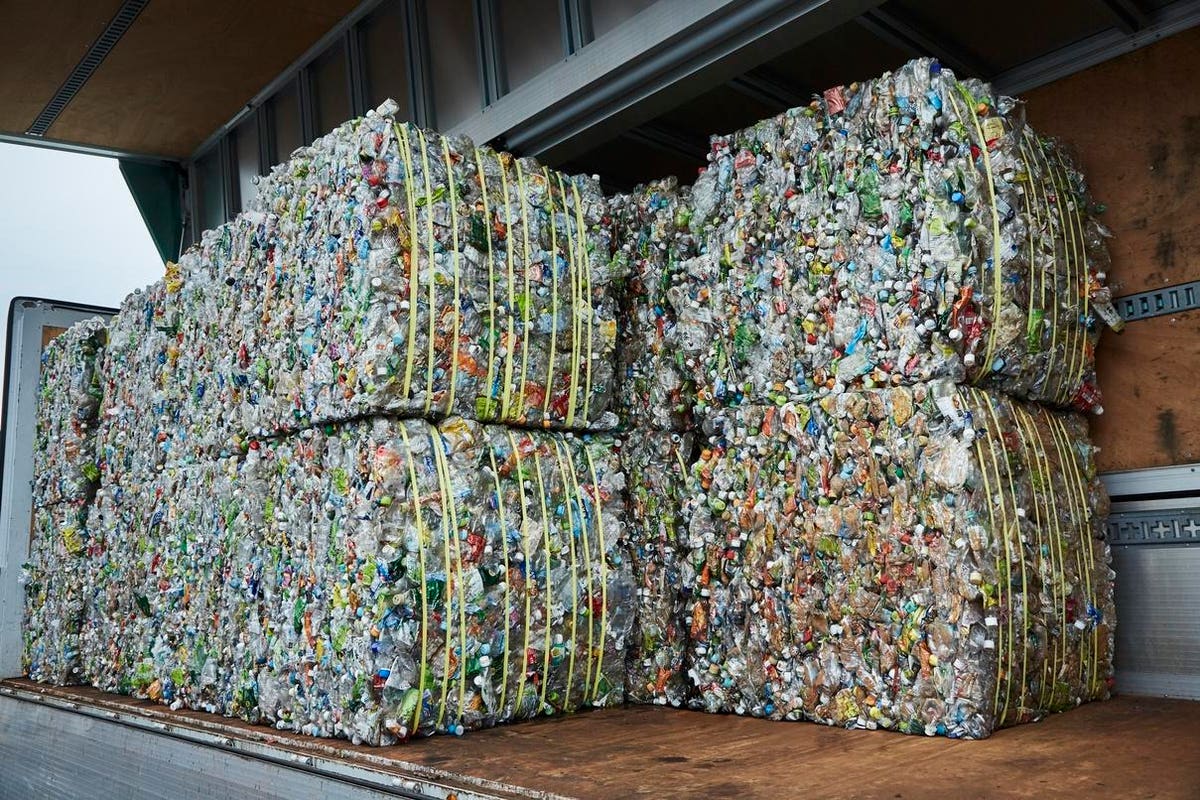CEO and founder of Archwey, the holding group of three companies changing the game when it comes to reusing and reducing plastic waste.
Over a year ago, we saw what seemed like a great moment in the war on plastic pollution. In March 2022, at the United Nations Environment Assembly in Nairobi, countries agreed to negotiate a global plastics treaty to stop the dumping of plastic in the ocean and reduce the world’s reliance on virgin plastic. Fantastic!
A year on, what progress have we seen? Very little. We add 14 million tons of plastic to the oceans each year—much of it made using fossil fuels.
A study from 2014 estimated that there were 5.25 trillion plastic particles in our oceans. Plastics have already negatively impacted almost 90% of marine species. Microplastics are making their way into the human bloodstream. Add on the disposable plastic used during the pandemic—estimated at over 8.4 million tons—and the task risks growing too big to tackle.
This is a problem that is important for everyone to address, and honestly, it makes good business sense to address it now. Consumers and employees are increasingly gravitating toward businesses that care about the environment. And taxes on plastic waste are going up. Here’s what business leaders can do to make a difference.
Take steps to phase out the worst plastics.
All virgin plastics are harmful, but some are at least recyclable. We need to either rapidly improve the technology to recycle “difficult” plastics, like polystyrene, or phase out their use until that technology arrives. I’ve found that in all but some medical situations, businesses can change their plastic usage, and consumers can stop buying from places that don’t change.
Look at the plastic use within your business. If you’re still using plastic bubble wrap and polystyrene packaging, look at alternatives. There are plenty out there. And look at the plastic coming into your business, from raw materials to stationery. If that’s wrapped in excessive plastic, speak to your suppliers. Ask them how they’re reducing plastic. The more widely those conversations are happening, the faster the change.
Commit to reusing the plastic we have.
I don’t want to rid the world of plastic entirely. Plastic is incredibly useful, but we need to use the plastic that already exists, not make more. There is so much plastic waste out there that can be recycled and repurposed, and very few businesses are trying to use it. Just 9% of global plastic gets successfully recycled, and there is no excuse for that. The list of uses for recycled plastic is endless, and recycling plastic can produce between 30% and 80% less CO2 than creating new virgin plastic.
Use recycled material in your packaging wherever possible, but also look beyond that. Everything from office furniture to shop displays to storage boxes can now be made from recycled plastic. We shouldn’t just be thinking about how to recycle our waste plastic but how to make sure the plastic we’re using is already from recycled sources.
Take a smarter approach to research and development.
It was encouraging to see representatives of major banks speaking at the World Economic Forum about the role banks could play in funding research into new recycling technologies. In our efforts to end plastic pollution, we must welcome help from all sides, including wealthy businesses.
Obviously, most businesses aren’t in a position to invest huge amounts in technology research, but we can drive progress within our own teams. Appoint an individual or group to monitor plastic use in your company and develop ways to reduce it. Report their findings. It’s a great way to demonstrate your commitment to change.
Change packaging design to increase recyclability.
“Potentially recyclable” packaging is simply not good enough. Packaging companies must focus on developing single-layered recyclable packaging rather than materials with multiple layers, which must be separated during the recycling process. Similarly, I suggest brands adopt rigid recyclable plastics, which are easier to recycle than flexible plastics and provide better protection.
Provide greater education on plastic recycling.
The current information on how and where to recycle is too confusing. A study by the Consumer Brands Association in 2019 showed 68% of Americans surveyed think all plastic with the recycle symbol (the triangle of arrows) is recyclable. Sadly, this simply means it is potentially recyclable, often requiring specialist methods. It doesn’t even mean it belongs in your domestic recycling. I want to see investment in public awareness campaigns to cut through the misinformation and help people understand what, where and how to recycle.
First, make sure you know what’s easily recyclable. You can find quick guides to recyclability of plastics online. For retail businesses, be honest with your customers. Say on your packaging, “This can go in your household recycling,” or direct them to specialist recycling if required. When you do use plastic that’s not recyclable, which is sometimes unavoidable, tell them why.
Eliminating virgin plastic is a gradual process. If you’re still working toward it, I’ve found that people understand as long as you tell them the truth. When it comes to tackling the climate crisis, consumers around the world want to help now. Let’s stop making it harder for them.
Forbes Business Council is the foremost growth and networking organization for business owners and leaders. Do I qualify?
Read the full article here




